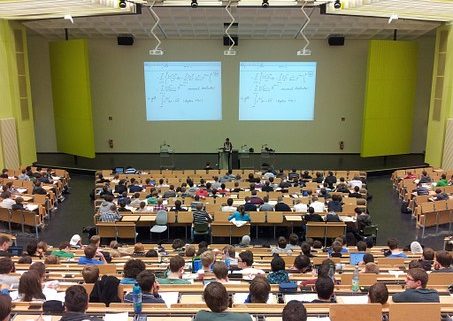“Treat the earth well: it was not given to you by your parents, it was loaned to you by your children. We do not inherit the Earth from our Ancestors; we borrow it from our Children.”Ancient Indian Proverb. Higher Education is about the future vitality of our nation and our World. Our universities should play a critical role in enhancing conservation education, climate change, and sound environmental practices.
They educate for the future they have the responsibility to teach why we must “treat the earth well” and be models for our communities
Without action on Climate Change, anything else we do will be severely compromised, the development of an alternative economy that employs students and protects our environment from the effects of climate change have to be among the highest goals of the nation.
However, higher education is not powerless. As a sector, it is the economic bedrock of many communities and as influential in shaping public opinion as religion. Climate change affects everybody, especially students who will see dramatic changes in their lifetimes due to global warming. Schools in vulnerable areas such as coastlines will not be able to operate if their campuses are flooded by rising sea levels or devastated by hurricanes or flash floods and landslides in the rural areas. Without a livable climate, higher education, as well as all human endeavors, are irrelevant.
College and university campuses are critical in helping us to understand the impacts of climate change and how to adapt to a rapidly changing world. Given the systemic impact of climate change, it is prudent that future business owners, teachers, scientists, politicians, and other leaders understand the challenges they will face and are prepared to overcome them, there is also a need to provide them with the best chance for success in the monumental task in front of them; working to ensure prosperity, social equity and environmental integrity for all through the next century.
Climate change mitigation lectures should be introduced in the curriculums in both public and private institutions sensitize on Solutions such as ending fossil fuel subsidies, implementing a carbon tax, transitioning to renewables, and building green communities require collective action, changes to policy, and large-scale investments there is a need for involvement all of higher education, must be a driving force in continued examination of climate change and development of opportunities to assure cleaner more secure planet for future generations.
Although we are not able to control very many of the aspects of climate change, through united effort we may be able to mitigate the most damaging effects on humanity.
Education teaches us the importance of taking responsibility for our actions, and it is through collective action that the greatest feats can be accomplished. It is only when leadership on the federal and international level work together for the collective good that we will have any chance of faring well through the challenges wrought upon us by climate change.
As institutions dedicated to truth, justice, and human flourishing, higher education has all the justification it needs to be the most vocal advocate for climate change at all levels of decision making. Higher education is politically powerful. Its connection with people, its economic influence, its enormous intellectual and human capital, could easily make higher education the most effective advocate for climate change.
So far higher education has been largely absent from advocating for the solutions that we need.
Therefore, in addition to changing the curriculum, and reducing the influence of the market on higher education, their role will not only be to educate but should teach and engage in advocacy for the policies and solutions that we want. Some people find advocacy distasteful because they think it means protesting in the streets
Demonstrating is the most visible form of advocacy, but the majority of advocacy involves having conversations, writing letters, and conducting outreach and education.
The Nation needs to make drastic measures come up with a joint campus sustainability movement to make climate change an issue that higher education recognizes it should address, it is up to us to build on that momentum and advocate for the solutions that can make a real difference.
Climate change cannot be reversed by a single institution nor a single country. A collective intervention in the multitude of factors that impact climate change is necessary for success.
Effective leadership and federal/state policy must be based on research and education regarding climate and the environment, energy systems, along with human/social factors and behaviors
Climate action is prudent insurance against the uncertainties of continued warming on global environmental change and its implications for human health and well being as well as the integrity of ecosystems and diversity of life
We know the right side of this issue, so let us take a stand. The students of today and tomorrow will thank us.
“For most of history, man has had to fight nature to survive. In this century he has to realize that in order to survive he has to protect it.” Jacques-Yves Cousteau Here we celebrate the unsung wildlife heroes in the grassroots doing remarkable work to conserve our wildlife heritage, Get to learn about wildlife from a ranger/ ecologist in Kenya a freelance eco-traveler, experience the diverse cultures and African heritage from the natives and take an adventure to new destinations to learn about rare attractions that are hardly talked about and to top it all up some of the best wildlife photographs that will make you reconnect to your wild side appreciate everything around us and fall in love with the natural world, because “It is not enough to love the natural world; the point is to defend and preserve it.” Edward Abbey
Our wildlife, our responsibility. When it comes to standing up for our wildlife it’s better to be outspoken than unspoken.




There is obviously a lot to know about this. I consider you made certain good points in features also.